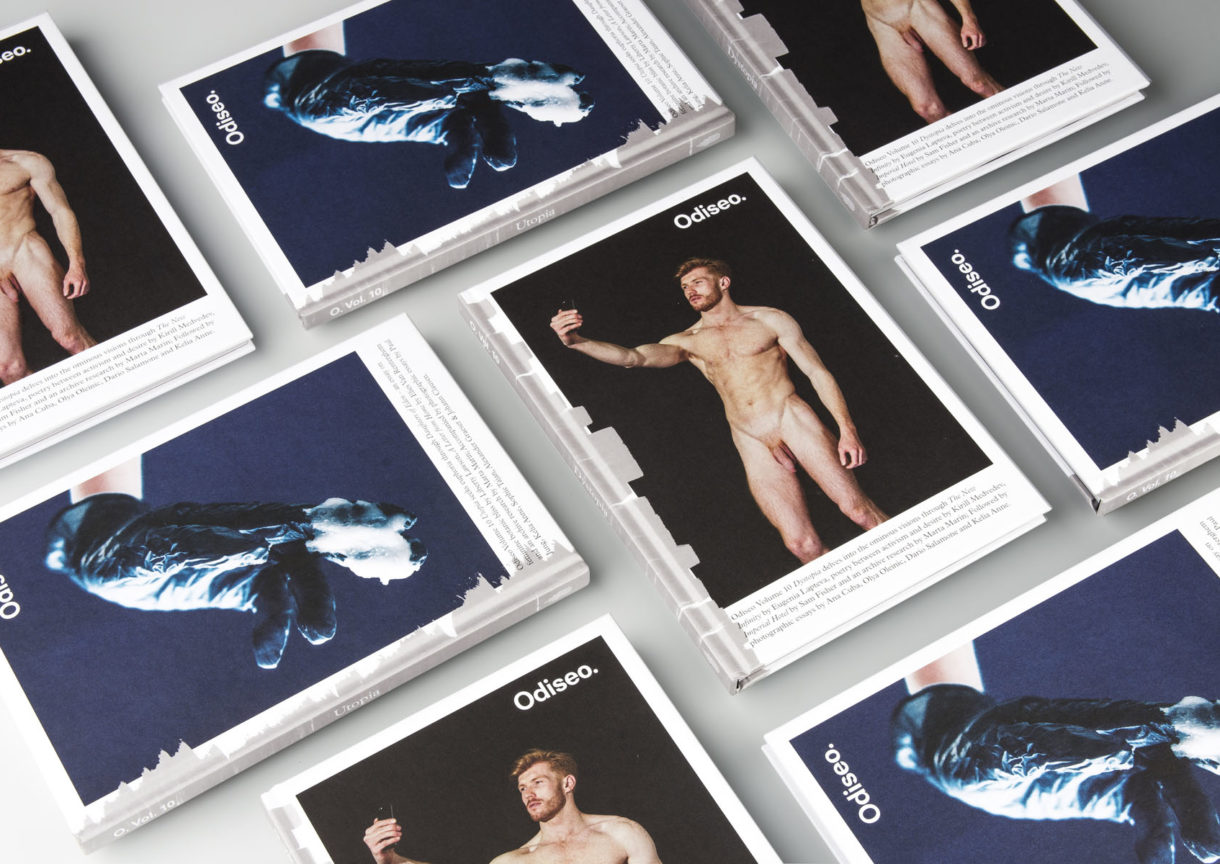Tags: Art Direction and Design, Creative Production
Designed by Folch
Designed by Folch
Bound to the opposing notions of Dystopia and Utopia – this monumental volume is divided into two parts where the counterpoints are reflected through eight photographic essays. Accompanied by topical texts –from fiction to essays, from poetry to prose– the authors delve into euphoric and ominous visions of the world.
“Odiseo is devoted to ripping up the erotica rulebook and replacing it with a “vision of seduction” designed to provoke new sensations from its reader.” Its Nice That

Two volumes, ‘Utopia’ and ‘Dystopia’, with distinct content constitutes the 10th issue of Odiseo.
Odiseo stems from a huge need to explore: seeking a visual, unique and personal vision of seduction, digging into new formats, eluding conventions. Odiseo combines imagery that lies between art, fashion and erotica with insightful philosophical essays which delve into universal themes. We aim for not only a visual experience, but for a intellectual seduction as well. Odiseo shouts out the unseen: it is contradictory, mysterious, intellectual and intuitive at the same time.
“We wanted this issue to really evoke a deep and profound seduction, even shocking and disturbing, in both text and image. The theme requires it.” Editor in Chief Emmy Koski to Stack Magazines
Kelia Anne’s contribution is embracing two distinct realities. The human touch is falsely embraced, yet disease is eradicated in her approach which evokes the perfected form in a sensual yet sterile utopian existence.
Odiseo Volume 10 Dystopia dredge into the ominous visions of the world through the lenses of Ana Cuba, Dario Salamone, Kelia Anne and Olya Oleinic. Followed by The New Infinity: The State of Being or Becoming by Eugenia Lapteva, tortured poetry by Kirill Medvedev, eco apocalyptic fiction by Sam Fisher and an archive research by Marta Marín Anglada.
A selection from the photographic essays in Odiseo Vol.10 Dystopia
Odiseo Volume 10 Utopia seeks euphoria through photographic essays by Paul Jung, Kelia Anne, Sophie Tajan, Alexander Graeser and Johann Clausen. Accompanied by Daughters of Eden – an essay on feminine botanic bliss by Liberty Lawson, A Letter from Home by Elies Van Renterghem and an archive research by Marta Marín Anglada.
A selection from the photographic essays in Odiseo Vol.10 Utopia
“We had tamed the grasses, but floods and droughts would test us, and we grew tired of falling to our knees to beg for her mercy. We came to realise that Mother Nature wasn’t Eden, she was Eve. Primordially disobedient. Beyond our control…” Excerpt from Daughters of Eden by Liberty Lawson